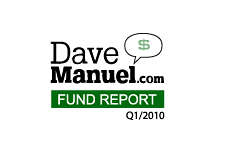Why Short-Selling Is Necessary in the Stock Market
 Many people slam short-sellers.
Many people slam short-sellers."They are wrongly profiting at the expense of hard-working investors all over the world."
"They engage in deception and the spreading of false rumors to make their positions profitable."
"If there were no short-sellers, everyone would make much more money."
"Short-sellers are the reason why my portfolio is down this year."
To those people I say: what exactly is it that you are smoking? And can I get some?
Short-selling is very important, very necessary and actually saves you much more money than it could ever cost you.
First off, the saying goes something like "Water seeks its own level." Meaning, the stock market will eventually properly value a publicly traded company, regardless of what any short-seller will tell you. If the company is a great company but is attracting short-selling interest, those short-sellers will eventually go away once the company proves itself. Short-sellers are in a stock because they think that the stock is overvalued; it is up to a company to prove them wrong. Do you really think that the CEO of Google sits up and night, wringing his hands about short-sellers? Or the CEO of any real company? They don't care, and if they do care, they shouldn't. If the company outperforms expectations, those short-sellers will eventually be crushed and leave the stock.
Short-sellers, believe it or not, are usually "smart" money. Meaning, on average (in my estimation after 10 years of experience), an average short-seller is more sophisticated and knowledgeable than your average standard investor. If you find yourself in an argument with a short-seller over the future prospects of a company, you may want to listen closely to what they are saying, even if you disagree with them. Not listening to their argument could be hazardous to your financial health. They may bring up some points that you had never considered.
Also, some of the biggest scams have been discovered by short-sellers. Why? Because they are on the prowl for these overbloated issues, and will normally do extensive research on the company to support their decisions. Because your losses are potentially unlimited in a short position, you need to be pretty confident in your position if you are short. They will do extensive investigations on a stock and will normally know the balance sheet inside and out. Again, it would probably be to your benefit to listen to what they are saying. Some of the biggest scams (Enron, etc.) have been initially unearthed by short-sellers.
Also, short-sellers provide the stock market with liquidity. When you sell a stock, someone has to be on the other side of your trade. Short-sellers buy, or "cover", when you sell, and sell when you buy. If a stock gets completely crushed overnight after announcing bad news, they are the reason for most of the buying pressure off the open, as they are covering their positions. In the case of a bankrupt stock, short-sellers can often be the only reason that you can get ANYTHING back for your virtually worthless equity position.
Lastly, short-sellers can help to self-police the equity markets. The SEC can't investigate every company, but a short-seller can do extensive investigations on a company if they feel as though the company is not on the up and up. The short-seller can then publicize his findings, giving you a chance to exit the stock if what you hear alarms you. Contrary to what you might think, short-sellers do a great service for the ordinary Joe Average investor. Next time you blame your losses on a short-seller, you might want to re-consider.
Filed under: Stock Market Education | General Knowledge



